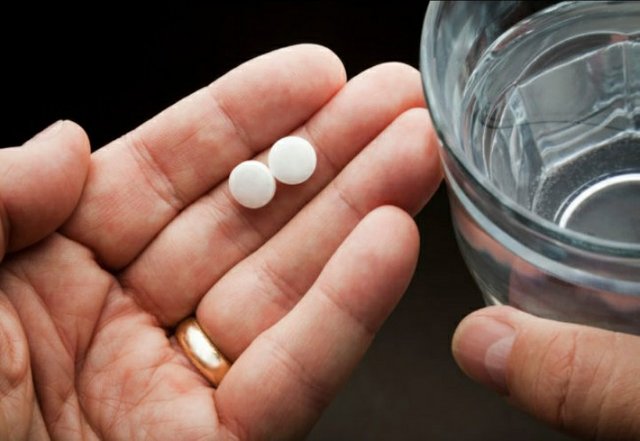Do you know when to take aspirin for a medical emergency?

Taking aspirin can save your life during some medical emergencies - for example, when you are having a heart attack. But it can spoil things in other cases.
When does Aspirin help - and when can it do more harm than good?
Cardiologist Chadie Ayub, MD, says, "Aspirin is a blood-slim that prevents the formation of further clots by blocking platelets - small blood cells involved in the clotting process". "This reduces the risk of death and limits the damage caused by heart attack."
However, if you have a certain type of stroke, then the same anti-clutting property can be worse. So if you feel that you or someone around you is stroke, do not take the risk of taking aspirin. Call 911, and get medical help immediately.
Aspirin for stroke? Let a doctor decide
Blame blood clotting for ischemic stroke, which block the artery and starve the brain of oxygen and nutrients. Taking aspirin for ischemic stroke can prevent further formation of clotting.
Dr. Ayub says, "All stroke is more than 85 percent ischemic." "Aspirin is useful if taken in the first 48 hours of any ischemic stroke."
But the other 15 percent of strokes are hemorrhagic, due to bleeding blood vessels in the brain. As a blood thinner, aspirin will increase bleeding and a blood pressure will become worse.
Dr. Ayub advised, "If you feel that you are stroking, then look at the doctor before taking any aspirin."
A doctor will usually scan your head, such as CT scan, to help clarify the type of stroke that you have made. Then he can decide whether aspirin will help or not.
Aspirin can prevent heart problems
If you have already suffered a heart attack, your doctor may prescribe medicines to reduce the chances of any other person (called secondary prevention). These drugs include:
Cholesterol-reduction drugs (statins)
Beta Blocker
ACE inhibitors
Dr. Ayub says, "Aspirin taken with these other pills acts as an important supplement for your treatment by reducing the chances of your heart attack."
Aspirin is also helpful for those who have coronary artery stent or coronary bypass surgery.
Dr. Ayub explains, "Aspirin is prescribed for life to protect the stent and graft." "After receiving a stent, it is important to take another blood slip along with aspirin every day."
Depending on the stunt of your time, after telling your doctor, you can stop other blood thinners, it is safe to do this.
But preventing aspirin can lead to a clot in the stunts and a life-threatening heart attack can occur.
3 tips for taking aspirin
Baby is best for aspirin prevention.
In most cases, doctors recommend 81 mg of child per day aspirin for prevention.
But there are times when an adult dose is the best. Dr. Ayub says, "If you are preparing to get a stent or if you have a sudden heart attack, then you want to take a dose of regular strength of 325 mg."
It is always good to check the dose with your doctor, he says.
The chewable aspirin works fast in a heart attack.
Aspirin comes in different forms. Dr. Ayub recommends taking chewable type during your heart attack, if it is in your hand.
"Chewing aspirin is rapidly absorbed in the stomach, so the action begins faster," he says.
If you are taking aspirin to help stop the heart attack, an antique-coated aspirin helps in reducing the stomach. Coating allows aspirin to bypass your stomach and absorb it within the intestines.
Dr. Ayub says, "However, if you feel that you are having a heart attack, then the most important thing is that there is no delay in immediate medical attention."
Never take aspirin on an empty stomach.
Because aspirin can disturb the stomach, always carry it with water and food, Dr. Ayob advises.
Who should avoid aspirin?
Because aspirin can increase the risk of bleeding, if you talk to your doctor before taking it:
Suffering from gastrointestinal ulcer
Aspirin has allergic reactions
Heavy drink
Are pregnant
There is a condition related to risk for significant bleeding
If you have a heart attack, take aspirin while someone says 911. it can save your life. But for the other emergencies, first take immediate medical attention - and let your doctors decide.
To the question in your title, my Magic 8-Ball says:
Hi! I'm a bot, and this answer was posted automatically. Check this post out for more information.